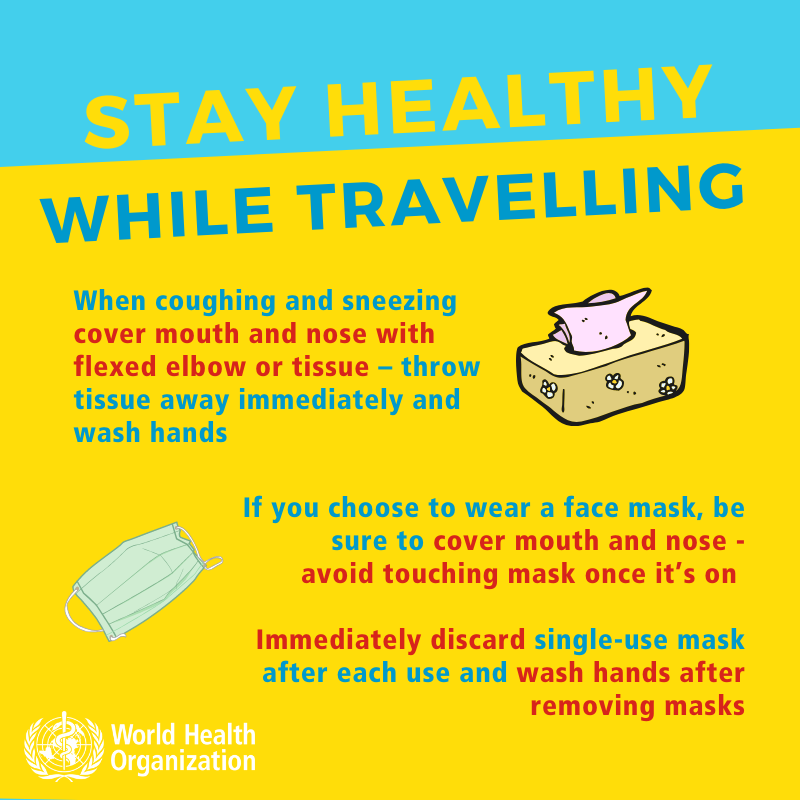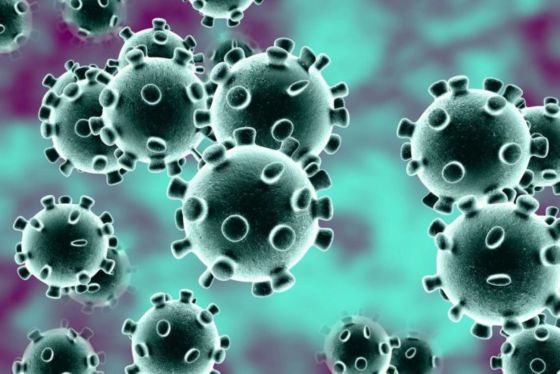By Jeph Ajobaju, Chief Copy Editor
The Lagos State Ministry of Health has confirmed the first case of coronavirus (COVID-19) in Nigeria.
The state Commissioner for Health, Prof. Akin Abayomi, in a statement around 1.40 am on Friday said the government had reported it to the Federal Ministry of Health.
“The case, which was confirmed on February 27, 2020, is the first case to be reported in Nigeria since the outbreak in China in January 2020.
The Federal Government has equally acknowledged the case through a statement by the Minister of Health, Dr. Osagie Ehanire.

Prof Abayomi said in the statement that:
“The case is an Italian citizen who entered Nigeria on the 25th of February from Milan, Italy, for a brief business visit.
“He fell ill on the 26th February and was transferred to Lagos State Biosecurity Facilities for isolation and testing. COVID-19 infection was confirmed by the Virology Laboratory of the Lagos University Teaching Hospital, part of the Laboratory Network of the Nigeria Centre for Disease Control. The patient is clinically stable, with no serious symptoms, and is being managed at the Infectious Disease Hospital in Yaba, Lagos,” the statement read partly.”
The commissioner said the state government through the Lagos State Ministry of Health, had put measures in place to ensure that any outbreak in the state was controlled and contained quickly in collaboration with the multi-sectoral Coronavirus Preparedness Group, led by the NCDC.
“We have immediately activated the State Emergency Operations Centre to respond to this case and implement firm control measures.
“I wish to assure all Lagosians and Nigerians that we have been strengthening our preparedness since the first confirmation of cases in China. We will use all the resources made available by the state government and the Federal Government to respond to this case.
“We are working to identify all the contacts of the patient since he arrived in Nigeria. Please, be reminded that most people who become infected may experience only a mild illness and recover easily, but it can be more severe in others, particularly the elderly and persons with other underlying chronic illnesses. All Lagosians should take care of their health and maintain hand and respiratory hygiene to protect themselves and others, including their own families, following these precautions:
“Regularly and thoroughly wash your hands with soap and water, and use alcohol-based hand sanitiser.
“Maintain at least 1 & half metres (5 feet) distance between you and anyone who is coughing or sneezing.
“People coughing persistently or sneezing should stay indoors or keep a social distance, but not mix with a crowd.
“Ensure that you and people around you follow good respiratory hygiene by covering mouths and noses with a handkerchief or tissue while sneezing or coughing. You can also sneeze or cough into your sleeve at the bent elbow. Then dispose of the used tissue immediately.
“Stay indoors if you feel unwell with symptoms, such as fever, cough and difficulty in breathing. Please call Lagos State Emergency hotlines 08023169485 or 08033565529 or 08052817243 which are available day and night.
“Stay informed on the latest developments about COVID-19 through official channels on TV and Radio, the Social Media, including the Lagos State Ministry of Health, NCDC and Federal Ministry of Health.
“Citizens must not abuse social media and indulge in spreading misinformation that causes fear and panic. The Lagos State Ministry of Health, in collaboration with Nigeria Centre for Disease Control, will continue to provide updates and will initiate all measures required to prevent the spread of any outbreak in Lagos,” Abayomi said.
Meanwhile, the World Health Organisation (WHO) has rolled out an advisory for the public on safety measures in the face of the ravaging global pandemic.
In the advisory titled “Coronavirus disease (COVID-19) advice for the public,” WHO itemised some basic protective measures against the new virus.

The statement read:
“Stay aware of the latest information on the COVID-19 outbreak, available on the WHO website and through your national and local public health authority. COVID-19 is still affecting mostly people in China with some outbreaks in other countries. Most people who become infected experience mild illness and recover, but it can be more severe for others. Take care of your health and protect others by doing the following:
Wash your hands frequently
Regularly and thoroughly clean your hands with an alcohol-based hand rub or wash them with soap and water.
Why? Washing your hands with soap and water or using alcohol-based hand rub kills viruses that may be on your hands.
Maintain social distancing
Maintain at least 1 metre (3 feet) distance between yourself and anyone who is coughing or sneezing.
Why? When someone coughs or sneezes they spray small liquid droplets from their nose or mouth which may contain virus. If you are too close, you can breathe in the droplets, including the COVID-19 virus if the person coughing has the disease.
Avoid touching eyes, nose and mouth
Why? Hands touch many surfaces and can pick up viruses. Once contaminated, hands can transfer the virus to your eyes, nose or mouth. From there, the virus can enter your body and can make you sick.
Practice respiratory hygiene
Make sure you, and the people around you, follow good respiratory hygiene. This means covering your mouth and nose with your bent elbow or tissue when you cough or sneeze. Then dispose of the used tissue immediately.
Why? Droplets spread virus. By following good respiratory hygiene you protect the people around you from viruses such as cold, flu and COVID-19.
If you have fever, cough and difficulty breathing, seek medical care early
Stay home if you feel unwell. If you have a fever, cough and difficulty breathing, seek medical attention and call in advance. Follow the directions of your local health authority.
Why? National and local authorities will have the most up to date information on the situation in your area. Calling in advance will allow your health care provider to quickly direct you to the right health facility. This will also protect you and help prevent spread of viruses and other infections.
Stay informed and follow advice given by your healthcare provider
Stay informed on the latest developments about COVID-19. Follow advice given by your healthcare provider, your national and local public health authority or your employer on how to protect yourself and others from COVID-19.
Why? National and local authorities will have the most up to date information on whether COVID-19 is spreading in your area. They are best placed to advise on what people in your area should be doing to protect themselves.
Protection measures for persons who are in or have recently visited (past 14 days) areas where COVID-19 is spreading
- Follow the guidance outlined above.
- Stay at home if you begin to feel unwell, even with mild symptoms such as headache and slight runny nose, until you recover. Why? Avoiding contact with others and visits to medical facilities will allow these facilities to operate more effectively and help protect you and others from possible COVID-19 and other viruses.
- If you develop fever, cough and difficulty breathing, seek medical advice promptly as this may be due to a respiratory infection or other serious condition. Call in advance and tell your provider of any recent travel or contact with travelers.
- Why? Calling in advance will allow your health care provider to quickly direct you to the right health facility. This will also help to prevent possible spread of COVID-19 and other viruses.
Protect yourself and others from getting sick
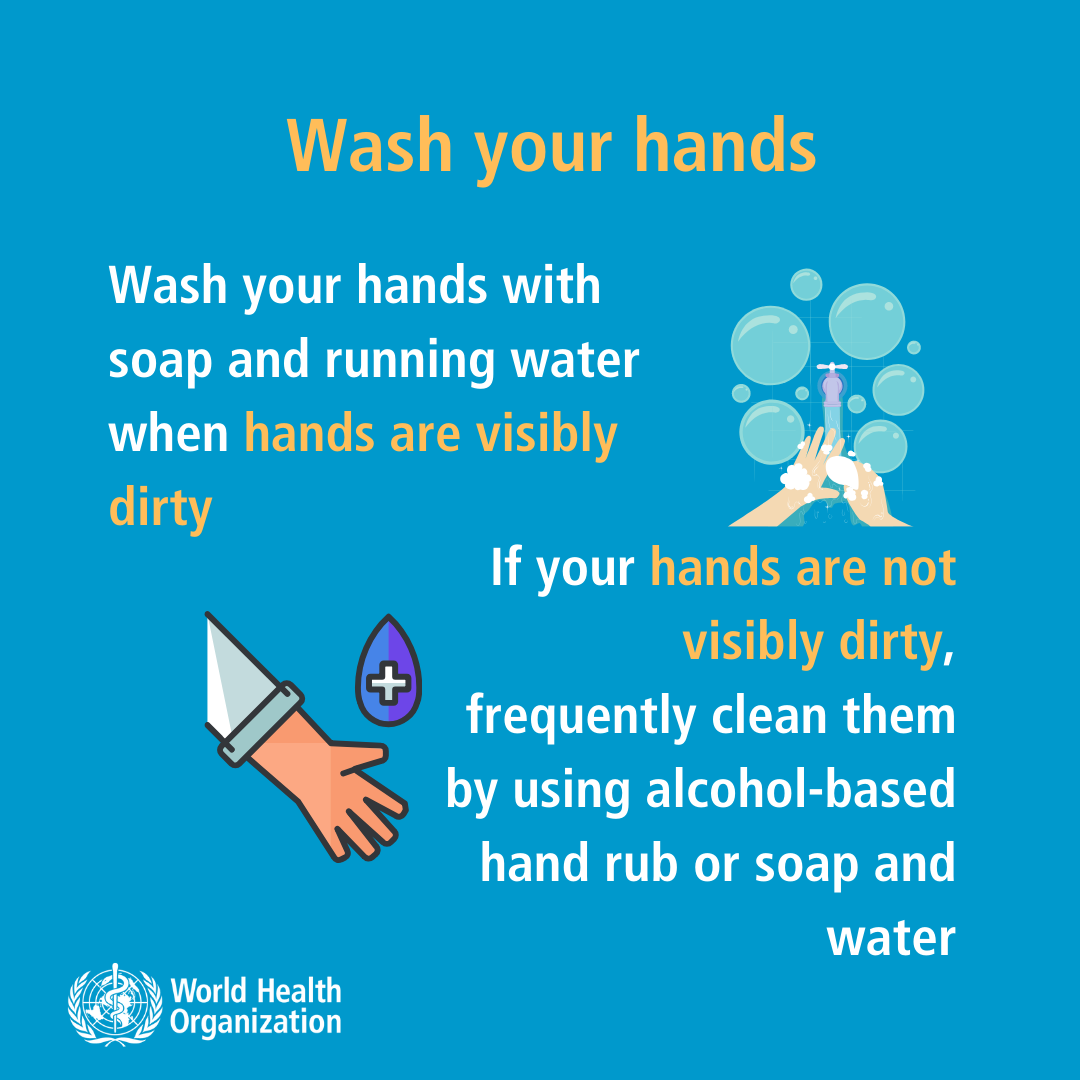
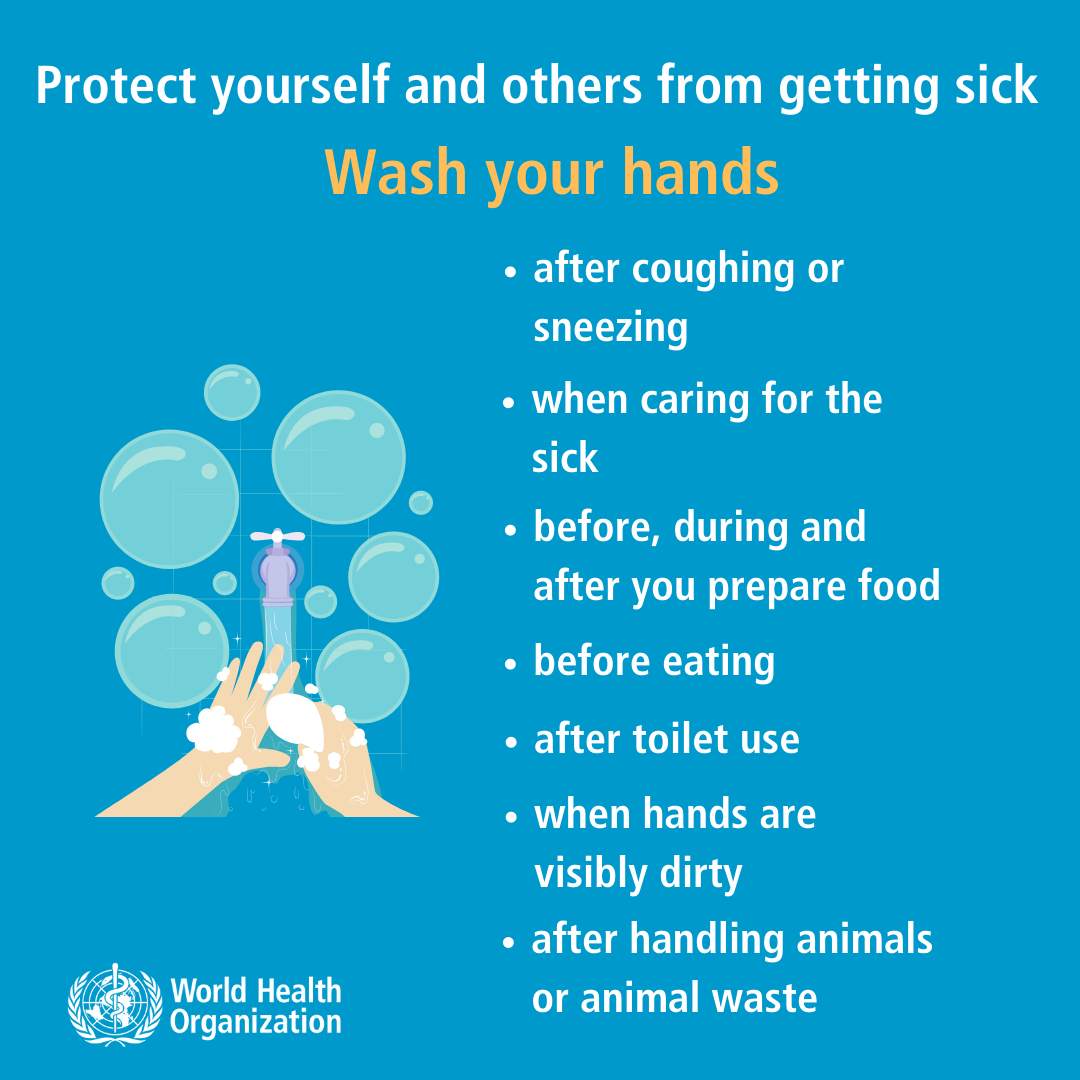


How to cope with stress during 2019-nCoV outbreak


Practice food safety
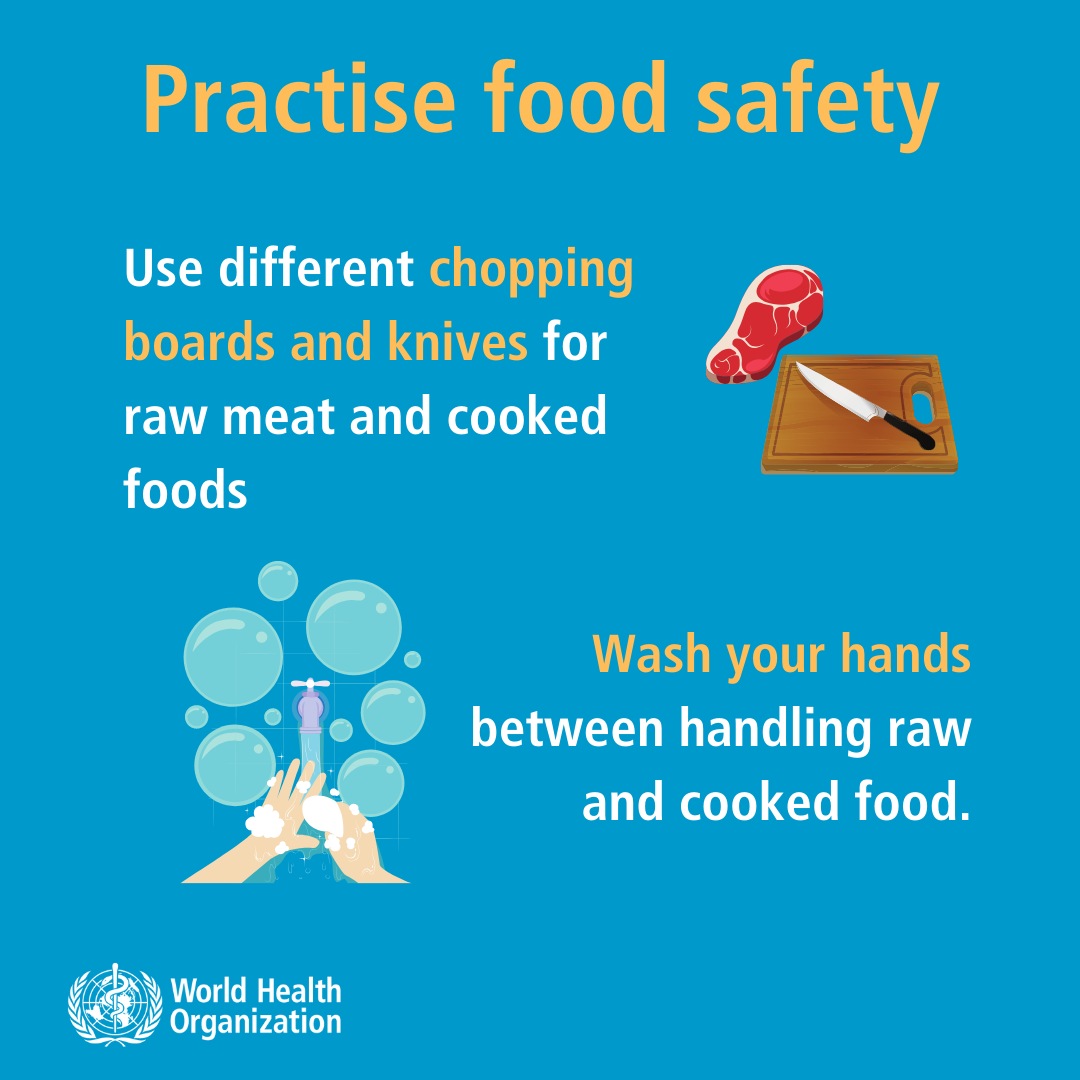


Shopping/Working in wet markets in China and Southeast Asia

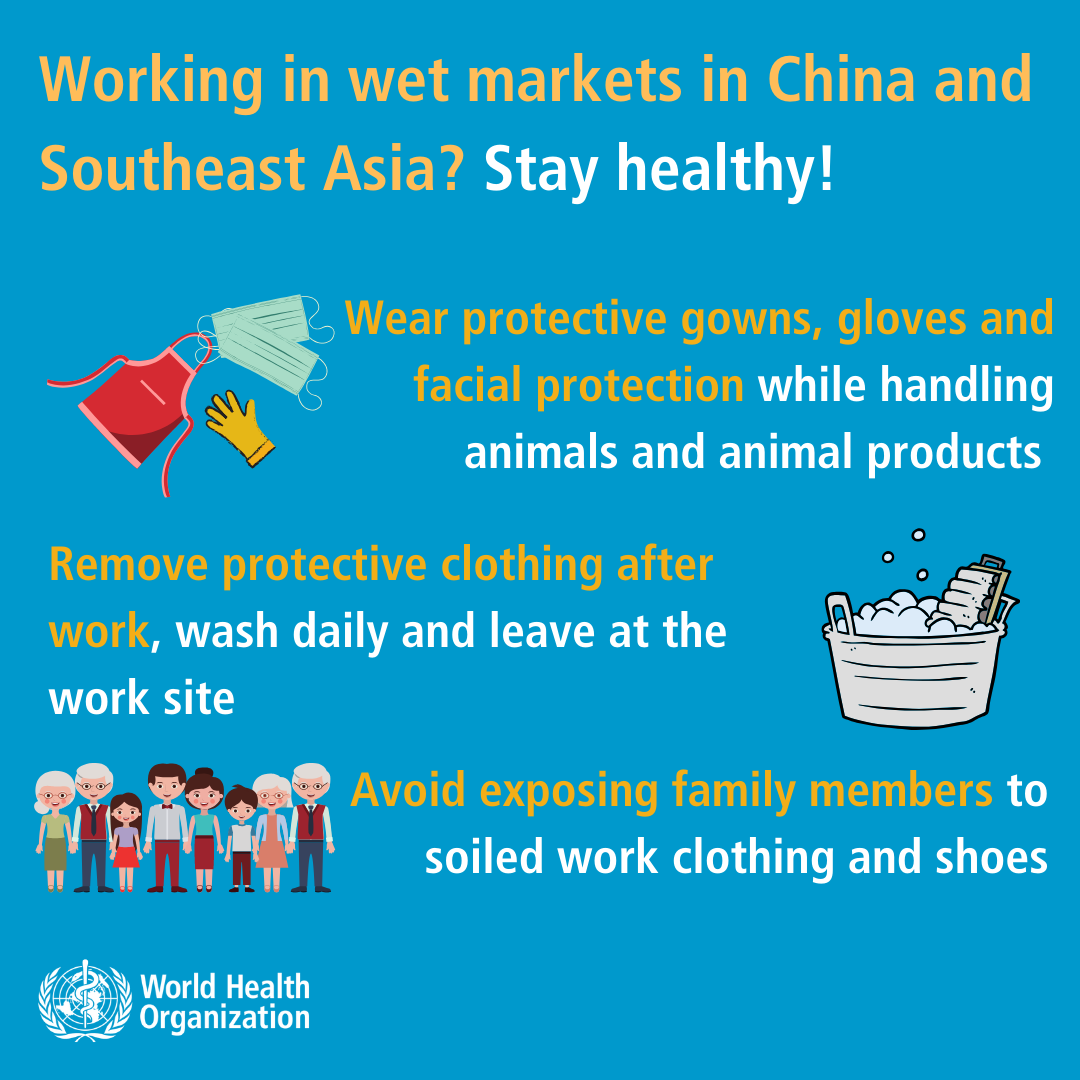

Stay healthy while travelling


